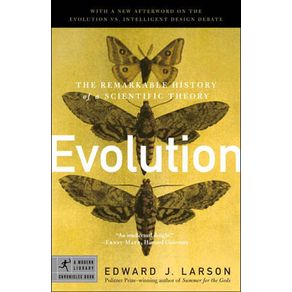Larson, a Pulitzer-winning historian (Summer for the Gods: The Scopes Trial and America's Continuing Debate over Science and Religion), traces the history of the contentious concept of evolution from Darwin's predecessors, like Cuvier and Lyell, to his early advocates, like Asa Gray (who tried to keep God in the mix) and Thomas Huxley, and "postmodern" advocates such as Stephen Jay Gould and Richard Dawkins. Larson reminds readers that Darwin hasn't always been held in as high esteem as he is today, even among scientists: at the beginning of the 1900s, the concept of evolution was widely accepted, but natural selection was not. Larson demonstrates that only through advances by mid-century population geneticists like Haldane, Fisher and Wright and sociobiologists like the late William Hamilton have most scientists come to accept all of Darwin's theories. Larson devotes chapters to dark episodes in evolution's history like the early 20th-century eugenics movement and the Scopes trial, where, Larson proposes, Clarence Darrow's theatrics may have done the cause more harm than good. This latest entry in Modern Library's Chronicles series isn't "evolution for dummies"â€"it requires concentration and some effortâ€"but Larson's survey should make valuable reading for young people going into the sciences and other science buffs. Illus. not seen by PW.
Copyright © Reed Business Information, a division of Reed Elsevier Inc. All rights reserved.



